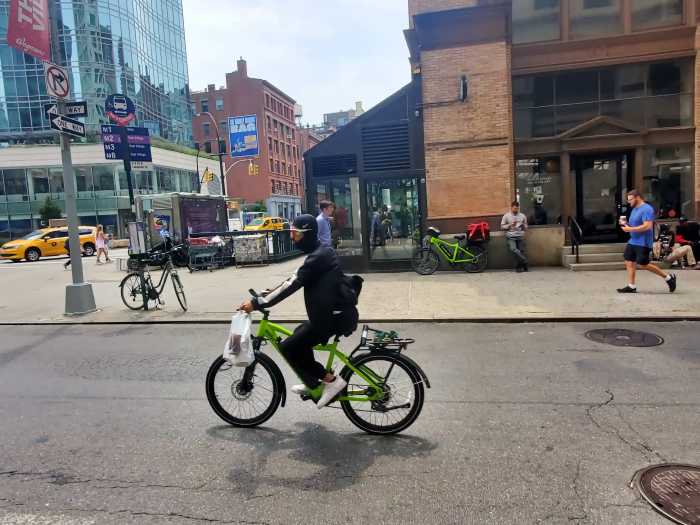A local lawmaker wants the city to ban hotels near the northern end of the Gowanus Canal in what has become the surprisingly hot “Gowanus Canal Hotel District,” saying that the three existing lodges and four more on the way are undermining the dwindling manufacturing base and could attract unseemly characters.
Councilman Bill DeBlasio (D–Park Slope) issued his call hours before the Department of City Planning unveiled its proposal to turn 25 blocks of the canal zone into a thriving mixed-use neighborhood of housing, commerce and, yes, industry (see main story).
“Simply put, there’s no place for hotels in the Gowanus Canal area. They just don’t fit,” DeBlasio said outside PS 32 on Hoyt Street, where the meeting with City Planning took place. “[Some] areas of the rezoning are meant to be manufacturing and preserve local jobs — not add to the burden of height, density and overcrowding of our community.”
But city officials don’t appear to share DeBlasio’s vision of a single use for property near the notorious canal.
“We are proposing mixed-use areas in which a broad range of development choices, including residential, light industrial, office uses and retail, as well as hotels, are appropriate,” said City Planning spokeswoman Jennifer Torres. “We are aware of concerns about hotels, but must balance that against the fact that the hotel industry is an important industry for the city’s economy.”
City zoning allows hotels to be built without zoning changes in some manufacturing areas, such as those around Gowanus Canal, where a Holiday Inn Express, a Comfort Inn and the boutique Hotel Le Bleu have already opened.
DeBlasio’s sudden attack on the hospitality industry comes as hoteliers continue to flock to the hardly-tourist-brochure-beautiful Gowanus area because of its relatively cheap land, subway access, and proximity to posh Park Slope and Carroll Gardens, increasingly popular tourist destinations themselves.
But DeBlasio and some neighborhood activists believe that hotels could hasten the transformation of the industrial nook of the northern Gowanus into a residential neighborhood.
“It’s a back door to residential development. I hate to be cynical, but we have to be on the lookout for that,” said Gary Reilly, a Carroll Gardens resident.
Worse, these critics say, if respectable tourism to Brooklyn plummets, the new hotels might start charging hourly rates and attracting a seedier clientele.
Hotel Le Bleu General Manager Robert Gaeta objected to DeBlasio’s proposed ban, even though it would eliminate competition for his and the other existing hotels.
“We provided 40 jobs that weren’t in Brooklyn before we came here,” said Gaeta, also mentioning the money tourists spend in local businesses.
Banning hotels “would go against the trend in America today of shifting from manufacturing to the service industry,” he said.
























